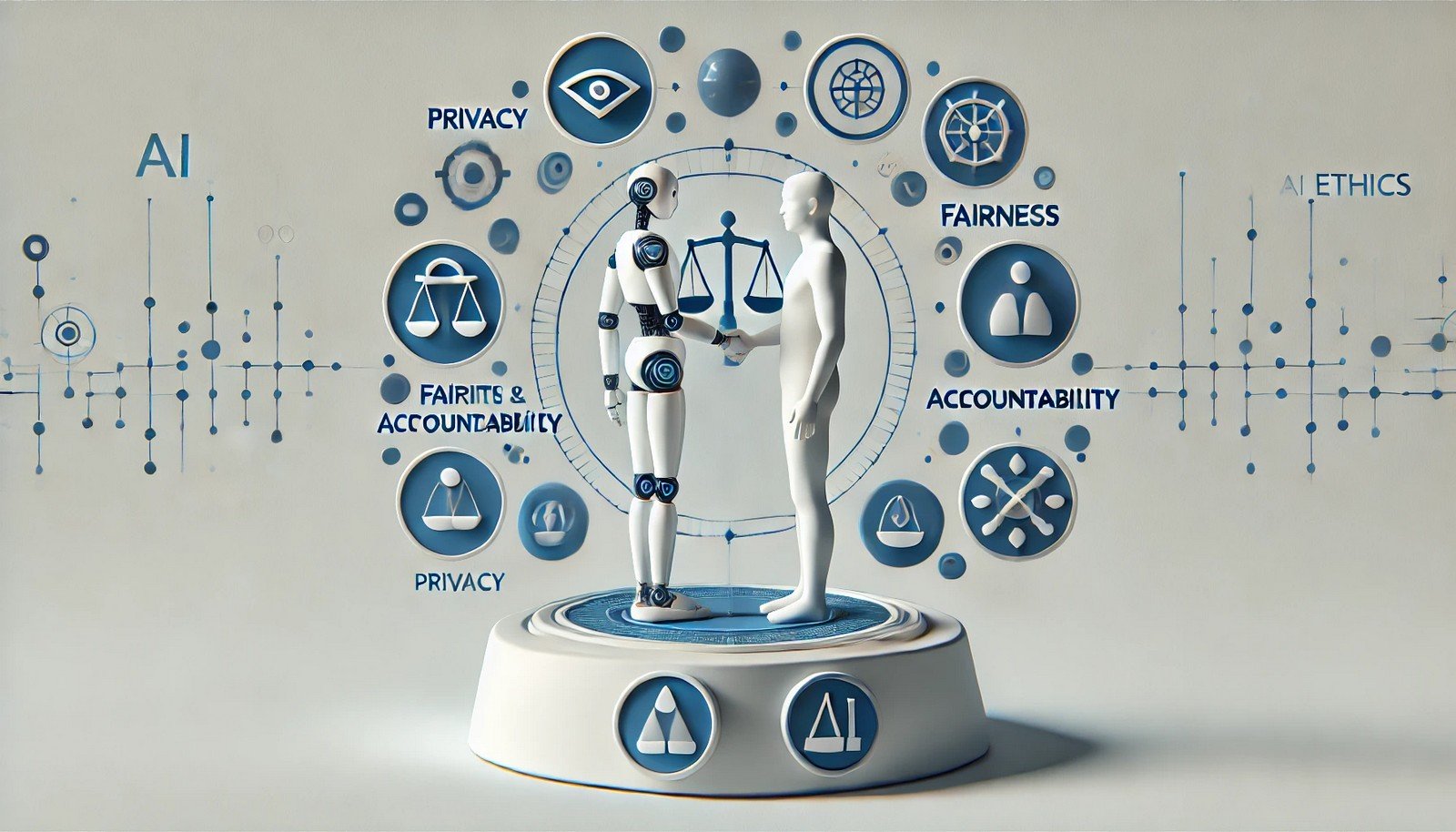AI Ethics

Quick Navigation:
- AI Ethics Definition
- AI Ethics Explained Easy
- AI Ethics Origin
- AI Ethics Etymology
- AI Ethics Usage Trends
- AI Ethics Usage
- AI Ethics Examples in Context
- AI Ethics FAQ
- AI Ethics Related Words
AI Ethics Definition
AI Ethics encompasses the principles, guidelines, and frameworks ensuring the responsible, fair, and beneficial use of artificial intelligence. It addresses concerns about bias, transparency, accountability, privacy, and potential social impact, guiding AI development to be aligned with human rights and societal well-being. AI ethics involves interdisciplinary efforts from technology, philosophy, law, and social sciences to create AI systems that prioritize human values, fairness, and respect.
AI Ethics Explained Easy
Imagine if you had a robot friend who could do anything for you, like help with homework or clean your room. AI Ethics is like the rules you’d want to make sure this robot is kind, safe, and fair to everyone, without doing things that might hurt or upset people.
AI Ethics Origin
The origins of AI ethics can be traced back to the 20th century when the potential power and autonomy of computing systems first raised concerns. With AI's rapid advancements, especially from the 1990s onward, scholars and tech leaders began addressing the ethical implications of machines that could make decisions, paving the way for today’s frameworks and ethical standards.
AI Ethics Etymology
The term "ethics" in AI Ethics stems from "ethics," which refers to moral principles guiding human conduct, applied here to AI to ensure its alignment with human values and societal welfare.
AI Ethics Usage Trends
Interest in AI ethics has surged over the past decade, especially in response to high-profile cases of AI bias, privacy breaches, and concerns over AI-driven job displacement. Regulatory bodies, industry leaders, and academics have increasingly collaborated to draft guidelines and policies to address these challenges, highlighting AI ethics as a crucial area for the sustainable integration of AI into society.
AI Ethics Usage
- Formal/Technical Tagging:
- Artificial Intelligence
- Ethics
- Technology Regulations - Typical Collocations:
- "ethical AI development"
- "AI bias mitigation"
- "AI ethical standards"
- "responsible AI"
AI Ethics Examples in Context
- Policymakers are developing AI ethics frameworks to guide the responsible use of facial recognition technology.
- In healthcare, ethical AI helps ensure that diagnostic algorithms do not favor certain demographics, supporting fair treatment for all patients.
- Companies use AI ethics principles to ensure their algorithms do not reinforce harmful stereotypes in hiring or advertising.
AI Ethics FAQ
- What is AI Ethics?
AI Ethics refers to the principles and frameworks ensuring the ethical development and deployment of artificial intelligence systems. - Why is AI Ethics important?
It ensures AI is safe, fair, and respects privacy, preventing harmful consequences on society and individuals. - What are the key areas of concern in AI Ethics?
Key areas include bias, transparency, accountability, data privacy, and societal impact. - How does AI ethics address bias?
By implementing guidelines and testing to minimize prejudices embedded in algorithms, ensuring fair treatment across all demographics. - What are ethical challenges in AI?
Challenges include managing AI bias, ensuring transparency, protecting user privacy, and preventing misuse of AI. - How do companies implement AI Ethics?
Through policies, dedicated ethics teams, and guidelines for responsible AI development and usage. - Are there laws for AI Ethics?
Yes, regions like the EU and some U.S. states are implementing regulations to guide ethical AI usage. - How does AI ethics impact AI research?
AI ethics drives researchers to prioritize safety, transparency, and fairness in developing new AI technologies. - What is the role of data in AI ethics?
Data is central, as ethical AI depends on unbiased, fair data to avoid discriminatory outcomes. - Can AI ethics prevent job loss due to automation?
While it doesn’t prevent job displacement, ethical frameworks encourage the responsible use of AI to balance social impacts.
AI Ethics Related Words
- Categories/Topics:
- Responsible AI
- Technology Ethics
- Bias in AI
- Privacy and AI
Did you know?
In 2021, an AI ethics committee blocked the deployment of a predictive policing system in a major city due to concerns over racial bias. This marked one of the first high-profile cases where ethical considerations directly influenced the halt of an AI technology rollout.
PicDictionary.com is an online dictionary in pictures. If you have questions or suggestions, please reach out to us on WhatsApp or Twitter.Authors | Arjun Vishnu | @ArjunAndVishnu

I am Vishnu. I like AI, Linux, Single Board Computers, and Cloud Computing. I create the web & video content, and I also write for popular websites.
My younger brother, Arjun handles image & video editing. Together, we run a YouTube Channel that's focused on reviewing gadgets and explaining technology.



Comments powered by CComment